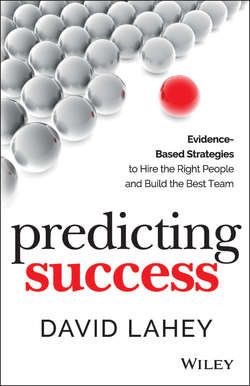Читать книгу Predicting Success - Lahey David - Страница 7
На сайте Литреса книга снята с продажи.
Chapter 1
How to Start
The Office Paradigm, Revised
ОглавлениеMercifully, long gone are the days when fat-cat corporate types would oversee a workforce whose participants inherently understood their role in what was. Looking back, it was a truly remarkable hierarchy. These were disquieting times. A pack of workers would toil their lives away, lining their boss's pockets – and nothing more. There was no sense that the individuals whose labors were earning money for the organization were anything but automatons, existing purely for the benefit of their employer. Their own personal objectives and quest for individual fulfillment were simply not factors. And the concept of work-life balance? Forget about it.
Still, it was a mutual arrangement, with both sides of the equation feeling kind of okay about the way things played out. I work for you. You pay me. You enjoy the spoils. I get the weekends off (unless the office needs me). Such noiseless tolerance for the status quo made exploitation easy. Managers could place extraordinary demands on their staffers who, in turn, would acquiesce without question. It was understood that bosses stood on the shoulders of their workers, but not with the same spirit of indebted gratitude as they might profess to today. In the old school, they perched without regard for the pain they were causing the guy struggling to stay upright beneath their weight.
Thankfully, a culture shift has since swept the workforce, and today's crop of managers is dramatically more enlightened than their predecessors. More than that, today's crop of the working class is more engaged with the value they bring to the communal endeavor, and more likely to make professional choices according to where their contribution is most appreciated and effectively utilized. Taken together, the latest generation of the North American working population possesses a much more sensitive appreciation for the human toll of sustained corporate success. I like to call this crew “the Facebook crowd.” They demand to be treated uniquely. After all, they've been the subject of special attention all of their lives. Whenever I come into contact with these folks, I'm wowed by their need for individualism. They want to be understood and to be seen as sources of light. They want the “big data” on their strengths. They want to know who they are.
There has never before been such a fierce need for human analytics in the workplace, and in work-life balance. The battle cry that human capital is the most important capital of all is ringing loudly throughout the land.
